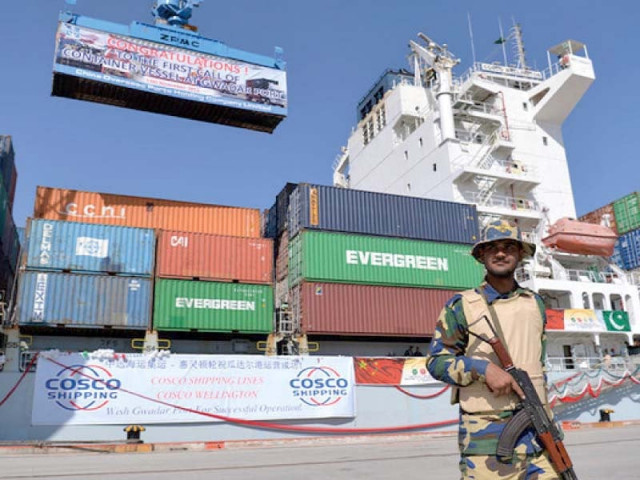Stuck soybean to cause shortage
DPP urged to seek one-time exemption to release ships carrying banned GMO soybean

The federal cabinet in its recent meeting, chaired by Prime Minister Shehbaz Sharif, said the soybean shipments stuck at the Karachi ports could lead to a shortage of poultry feed in the country, according to sources.
The issue of detained soybean cargoes was raised according to the agenda. It was explained during the meeting that the cargo of six ships was not being released as the import of genetically modified soybean was banned for human consumption.
According to the Cartagena Protocol, the countries were well within their right to disallow the import of Genetically Modified Organisms (GMO) intended to be used as food or feed. However, it was the task of the Department of Plant Protection (DPP) to decide and recommend the grant of a one-time exemption to the cabinet.
In addition, the meeting noted that GMO soybean was being illegally imported for quite some time. Recently, it was informed, that the Customs Intelligence had intercepted a shipment carrying GMO soybean, which eventually resulted in detaining five other similar shipments.
During the discussion, it was suggested that a committee be constituted under the convenorship of the minister for National Food Security and Research to discuss the issue and give recommendations to the cabinet, endorsed by the members.
The cabinet, in this connection, has constituted the committee to discuss the GMO soybean cargoes withheld at the ports of Karachi under the convenorship of minister for National Food Security and Research. The minister for climate change, minister for commerce, minister for industries and production, minister for law and justice, minister for railways and aviation and minister for human rights were also included in the committee.
In an earlier meeting of the National Assembly Standing Committee on National Food Security, Federal Minister for National Food Security and Research, Tariq Bashir Cheema had said that the US ambassador had approached him to give one-time clearance to illegally imported GMO soybean vessels, after which he could impose a ban on the commodity. He added that the customs authorities of Pakistan had seized nine shipments containing GMO soybean seeds.
The action of the Pakistani authorities came in light of the law that only allows the import of non-GMO soybean as GMO soybean was said to cause cancer.
Wheat situation
The secretary of the national food security and research division also briefed the cabinet on the wheat situation in the country and its demand from the provinces.
The secretary said for the year 2022-23, total wheat requirement will be 30.79 million metric tonnes.
He explained that “27.29 million metric tonnes of wheat will be required for human consumption for a population of 237 million @115 kg per person per annum.
“There will also be a requirement of 1.20 million metric tonnes on account of seed for a sowing area of around 9 million hectares (22.24 million acres). Poultry feed and wastages will also require 0.30 million metric tonnes of wheat.”
The meeting was told that the government will maintain a strategic reserve of 2 million metric tonnes of wheat to offload in the market to minimise the threat of any artificial shortage.
It was also discussed that the provinces had placed the demand of additional wheat for 2023.
According to the demand, additional requirements include 500,000 metric tonnes for Punjab, 300,000 metric tonnes for Sindh, 200,000 metric tonnes for Khyber Pakhtunkhwa (KP) and 40,000 metric tonnes for Balochistan.
The Trading Corporation of Pakistan (TCP) has also awarded two tenders of 85,000 metric tonnes + 300,000 metric tonnes (scheduled to arrive between December 2022-January 2023).
Published in The Express Tribune, December 10th, 2022.
Like Business on Facebook, follow @TribuneBiz on Twitter to stay informed and join in the conversation.



















COMMENTS
Comments are moderated and generally will be posted if they are on-topic and not abusive.
For more information, please see our Comments FAQ